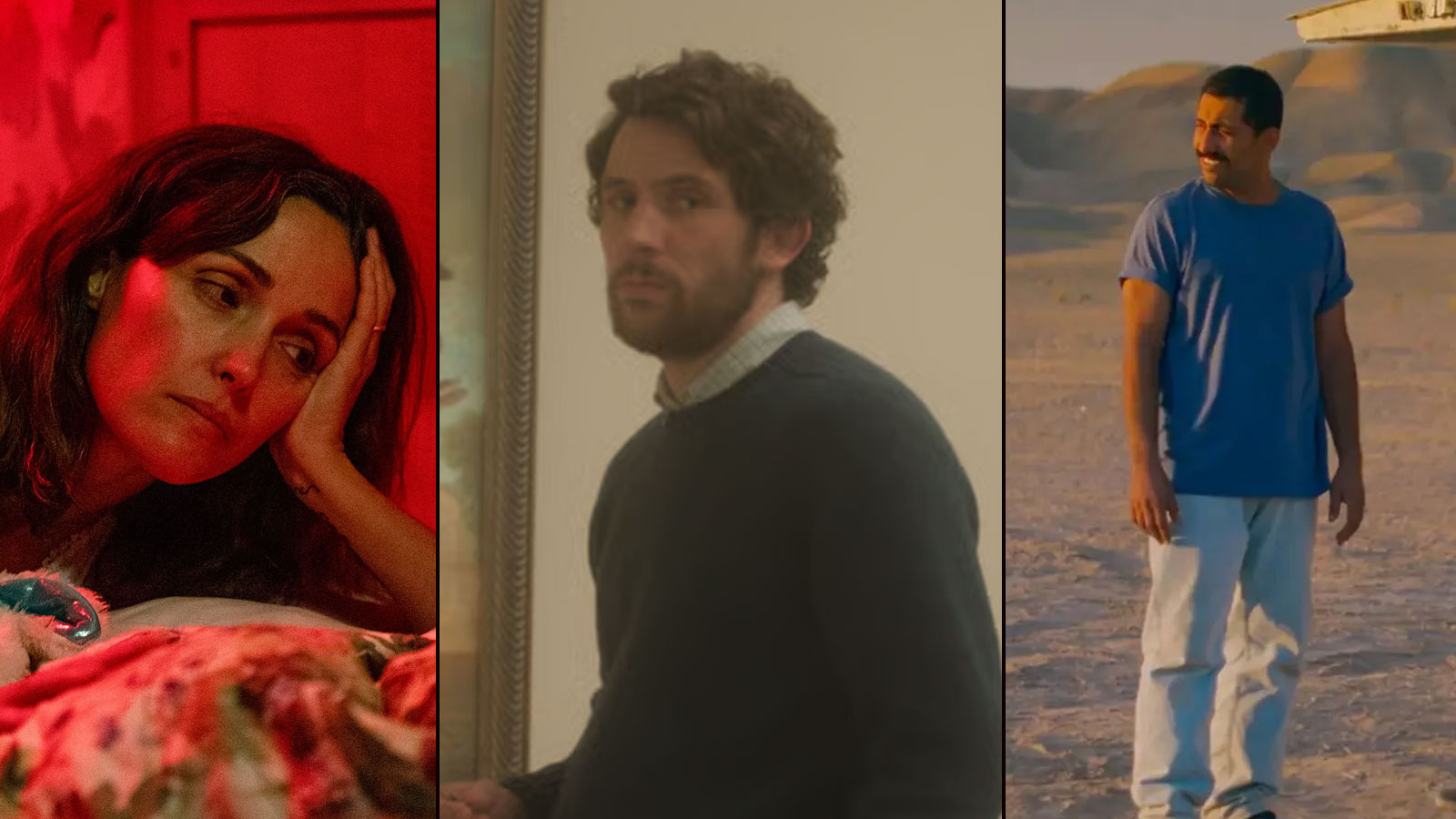While it’s hard for any film this year to follow in the shadow of Paul Thomas Anderson’s One Battle After Another, October is a particularly stacked month per usual. Featuring some of the finest films on the festival circuit finally making their theatrical debuts, it’s a treasure trove of selections.
15. Frankenstein (Guillermo del Toro; Oct. 17 in theaters and Nov. 7 on Netflix)
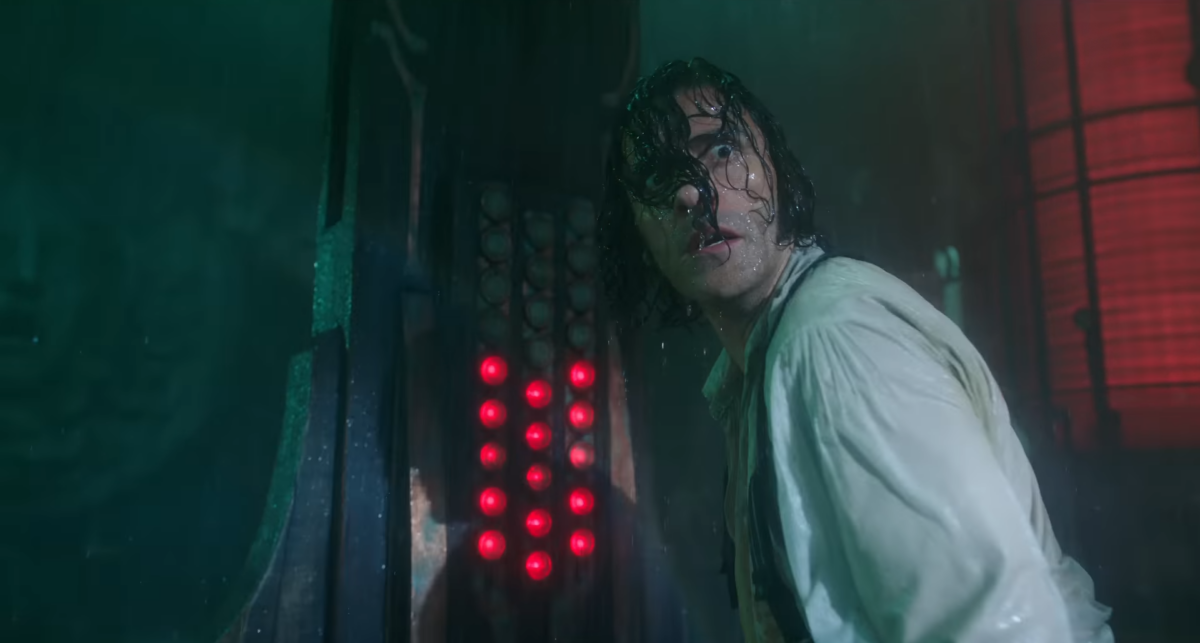
A film that feels like the perfect match of director and material, Guillermo del Toro’s Frankenstein hit the fall-festival circuit and will now arrive this month just in time for Halloween, ahead of a November Netflix release. Savina Petkova said in her review, “There are a few allegorical interpretations one can impose on Victor and the creature, always phrased as a dichotomy––nature-culture, past-present, parent-child––but what stands out is the literal power of storytelling and who gets to do it. Frankenstein’s monster has to learn to walk, feel, and talk in a way different from humans––perhaps a freer, ‘purer’ way, as Elizabeth would suggest. Religious undertones notwithstanding, the notion of forgiveness is crucial in Del Toro’s film and perhaps makes it the most optimistic of this year’s Golden Lion contenders.”
14. The Ice Tower (Lucile Hadžihalilović; Oct. 3)
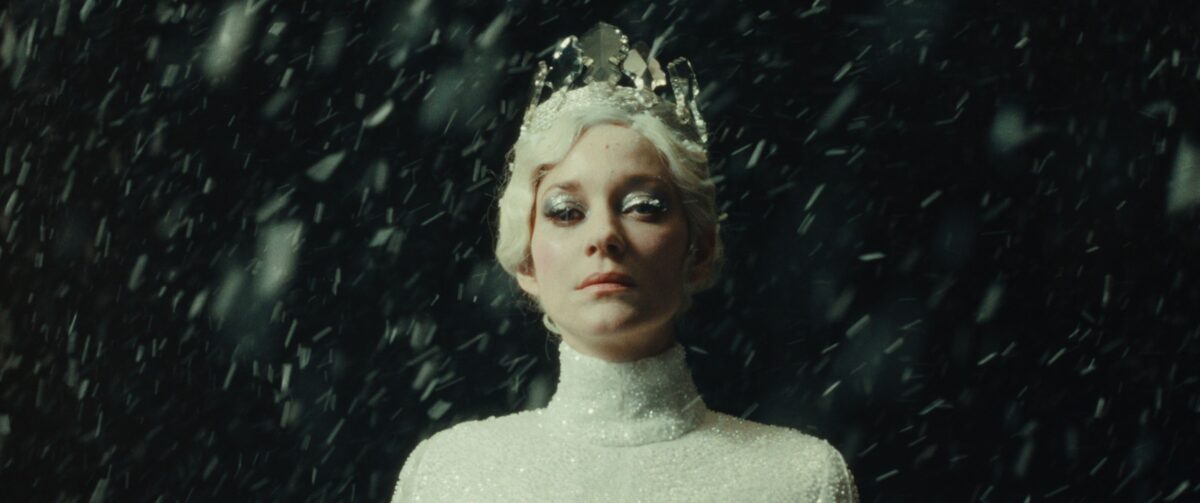
One of the most intriguing director-star combinations of the year, Lucile Hadžihalilović’s latest film stars Marion Cotillard (not to mention Clara Pacini, August Diehl, and a wig-wearing Gaspar Noé). As Savina Petkova said in her Critic’s Pick review out of Berlinale, “The Ice Tower is magnificent to look at, so textured and lavish at the same time; the smooth work of cinematographer Jonathan Ricquebourg (The Taste of Things) ensures longer takes are as glacial as winter terrain. Hadžihalilović has formed an homage to cinema as an enchantment-casting machine. Alongside Jeanne (Pacini), who steps in as a supposed extra to then be promoted to stand-in and secondary character by Cristina (Cotillard) herself, we peek behind the scenes, seeing the shoot and everything between takes (including the drama and inarticulate tensions). Yet the mise-en-scène is always a stand-out: there is no ‘ugly’ place in The Ice Tower, a film where nature, the dailies, and the film shoot are equally mesmerizing, no space that is less-than-magical when everything is equally exciting for Jeanne herself.”
13. Bugonia (Yorgos Lanthimos; Oct. 24)
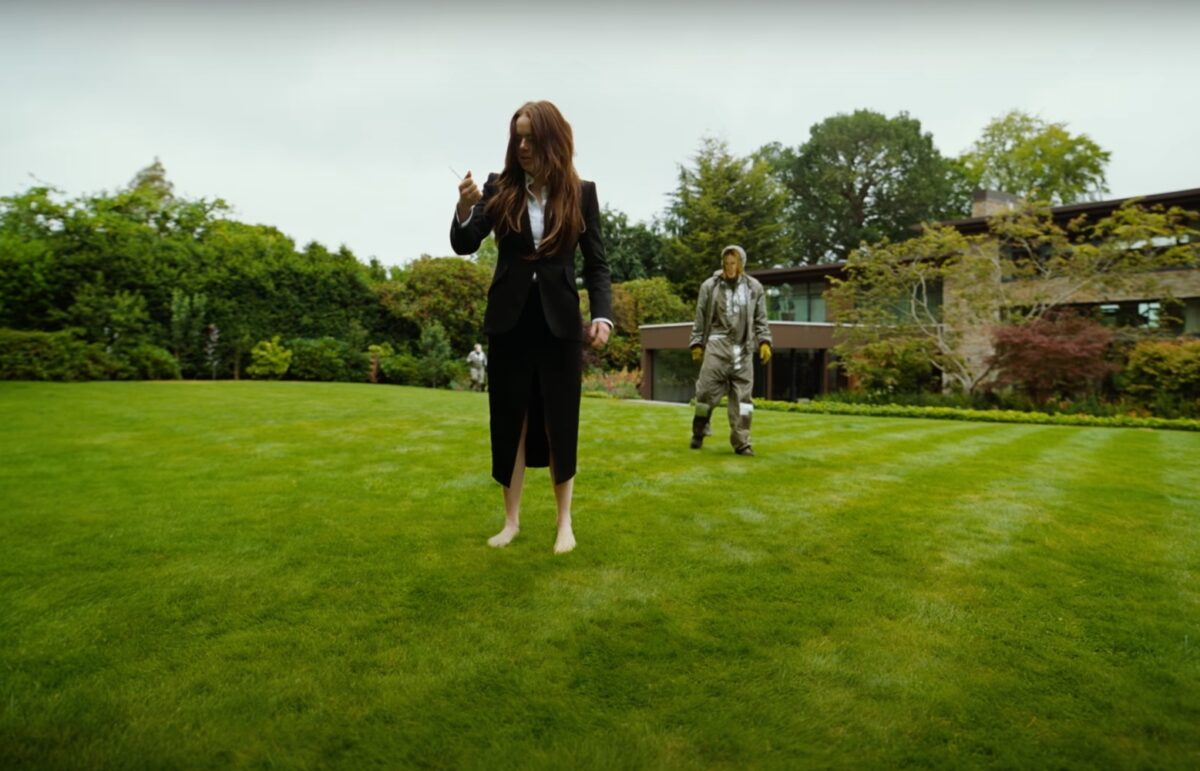
Following Kinds of Kindness, Yorgos Lanthimos has once again teamed with Jesse Plemons, Emma Stone, Robbie Ryan, and Jerskin Fendrix, this time for a new take on Joon-hwan Jang’s Korean cult classic Save the Green Planet! Zhuo-Ning Su said in his review, “After dabbling in dystopian fantasy (The Lobster) and period comedy (The Favourite), shocking us along the way with original creations (Dogtooth) and fanciful adaptations (Poor Things) alike, Yorgos Lanthimos has proven time and again that there’s not a single uncreative bone in his body. Remaking the criminally underseen Korean sci-fi comedic thriller Save the Green Planet!, he succeeds in honoring the original while putting his unique stamp on it. The result is a sleeker (if slightly paler) version of a truly bonkers film.”
12. Roofman (Derek Cianfrance; Oct. 10)

It’s been nearly a decade since the last feature from Blue Valentine and The Place Beyond the Pines director Derek Cianfrance, but he is finally returning for what looks to be his most crowd-pleasing film. Ethan Vestby said in his TIFF review, “This brings us to his first feature in nine years, Roofman, which sees some tug of war between Cianfrance and star-producer Channing Tatum. You can detect the former seeing another story of doomed familial bonds in working-class America, with the latter probably eyeing a star vehicle where he can be maybe the most likable onscreen character in decades. While that tension remains apparent throughout, by film’s end, a synthesis is fortunately reached.”
11. Bogancloth (Ben Rivers; Oct. 3)
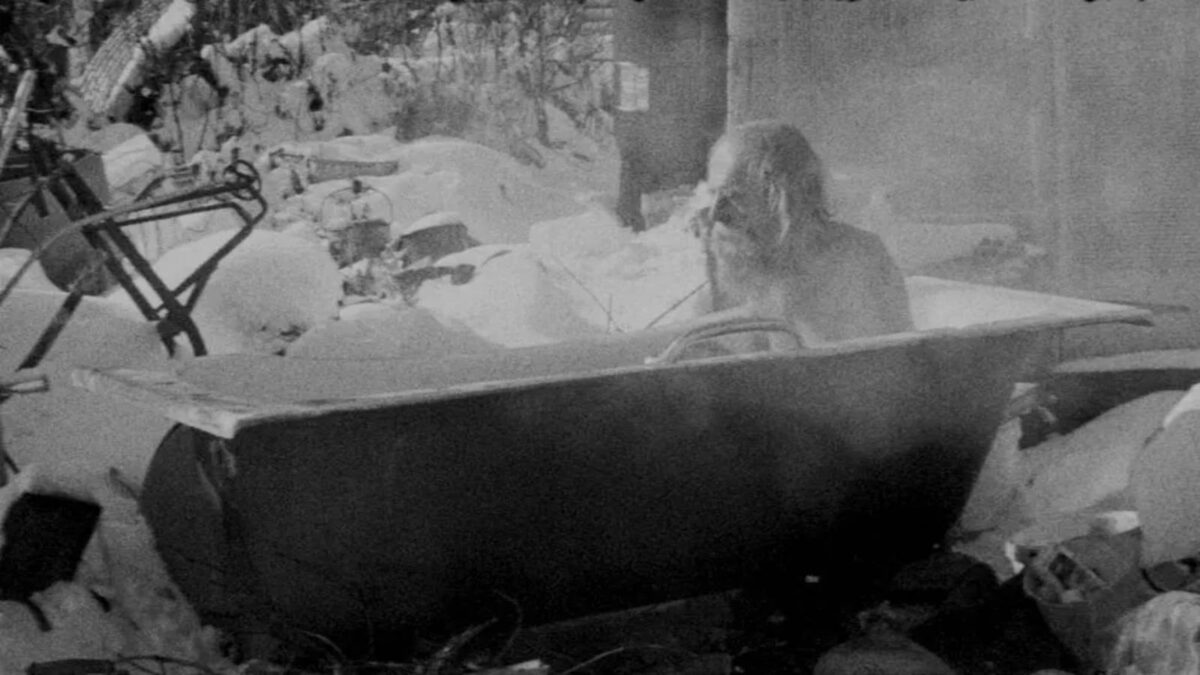
While Ben Rivers tours with his latest film, Mare’s Next, his previous feature, Bogancloth, begins a run at New York’s Anthology this Friday. As Leonardo Goi said out of last year’s Locarno, “With its capacity to wring bliss and beauty out of the most mundane routines, the film approximates something close to what Herzog once called ‘ecstatic truth’––that mysterious, elusive type of truth that can only be reached through imagination. By the time Bogancloch wraps with an entrancing drone shot, the camera levitating skyward and dwarfing Jake and his house into infinitesimal dots, this tiny corner of the Highlands has become an immense expanse, this shaggy-haired loner a king of infinite space.”
10. The Smashing Machine (Benny Safide; Oct. 3)
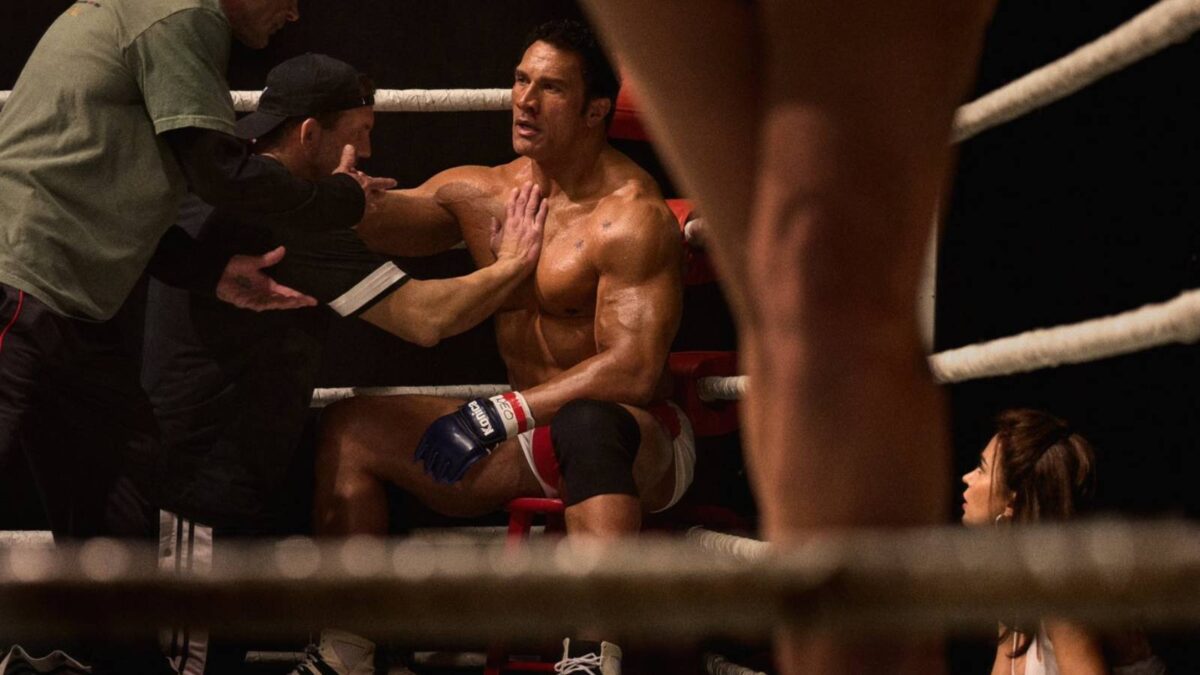
Safdie season kicks off this October with Benny following the brilliant The Curse with a desperately needed career rejuvenation for Dwayne Johnson. Rory O’Connor said in his review, “The Smashing Machine is a movie with a lot of heart and soul. It’s also a movie with great love for its subjects: the people involved and, for better and worse, the industry they helped build. It’s inspired by a 2002 HBO documentary of the same name and boasts a central performance from Dwayne ‘The Rock’ Johnson as Mark Kerr, a veteran of the ‘no holds barred’ combat circuit that eventually matured into the more lucrative UFC (albeit long after Kerr had exited the ring). I’m mostly happy to report that it’s a far weirder movie than it needed to be––an art film masquerading as a tried-and-tested staple that’s seldom less-than-interesting but also rarely charged with the tension of the best sports movies.”
9. Urchin (Harris Dickinson; Oct. 10)
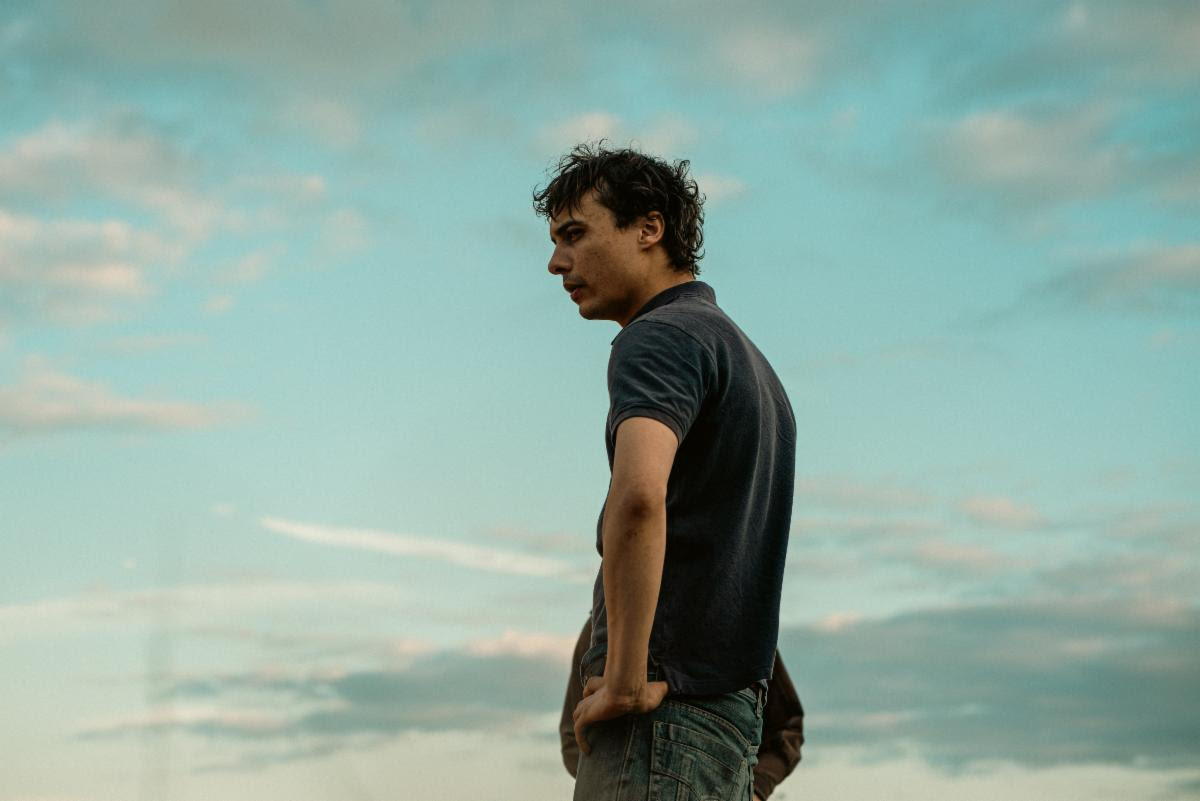
While the only thing more hit-or-miss than directorial debuts are directorial debuts from actors, one of the more accomplished in recent memory is Harris Dickinson’s Urchin. The rather riveting character study follows a London man (Frank Dillane, in one of the year’s most impressive performances) trapped in a cycle of self-destruction as he attempts to turn his life around. Rory O’Connor said in his review, “A few scenes into Urchin, we take a trip through the Bardo. First the camera (as in a million films before this) closes in on a shower drain, but then something new: a tunnel of darkness and color that gives way to damp, mossy calm, where a lone man in a clearing, standing with his back to us, is taking in the light. The director of this intrepid sequence is Harris Dickinson, who has found the time––somewhere between becoming a beloved actor and sex symbol and playing John Lennon––to direct a thoughtful, adventurous film.”
8. Anemone (Ronan Day-Lewis; Oct. 3)
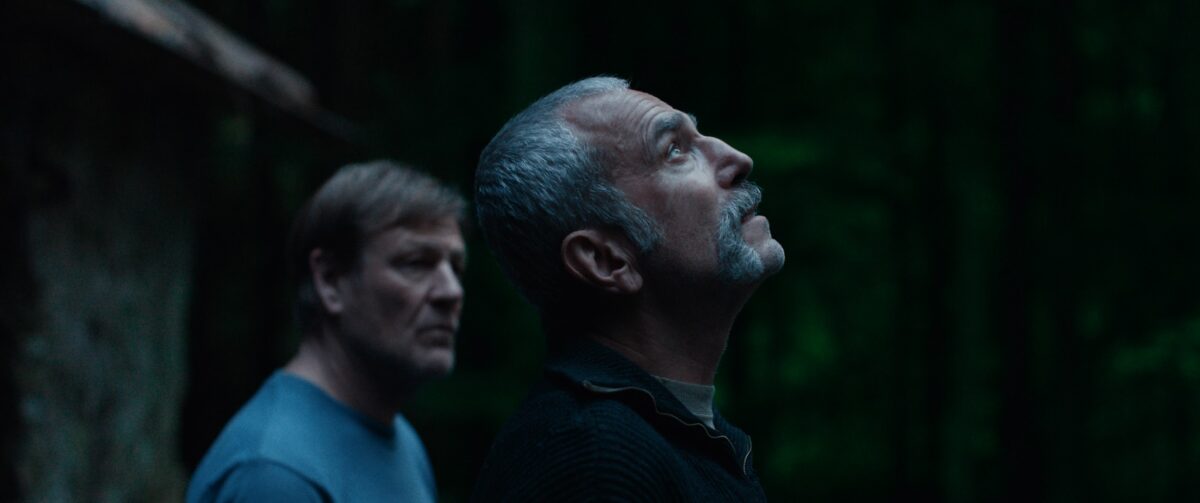
It’s only fitting, in a season where we’re getting a new Paul Thomas Anderson film and a five-hour documentary on Martin Scorsese, that one of their greatest collaborators is finally making his return. Daniel Day-Lewis has ended his post-Phantom Thread retirement for Anemone, which his son Ronan Day-Lewis, in a feature debut, is directing from a script that’s co-written by his father. Jake Kring-Schreifels said in his review from NYFF, “At first glance it might seem like a father lending his name and credibility to help kickstart his son’s pet project in search of financing––except that the younger Day-Lewis has crafted something haunting and exquisite, a slow-burning, two-handed meditation about grief, regret, and the kind of absence that irreparably fractures a family. Mostly, though, it supplies the elder Day-Lewis a chance to flex his dormant muscles, most prominently with a couple of monologues––one humorous and scatological in nature, the other reflective, darker, more vulnerable––that sneak on you in overwhelming ways. It’s been a long time since the actor has talked and laughed and yelled and cried in front of the camera. You’d never really know it.”
7. A House of Dynamite (Kathryn Bigelow; Oct. 10 in theaters and Oct. 24 on Netflix)

After taking the longest break of her career, Kathryn Bigelow has finally retuned with A House of Dynamite, a propulsive, intricately engineered thriller which imagines what happens when a single, unattributed missile is launched at the United States. Rory O’Connor said in his review, “A House of Dynamite is written by Noah Oppenheim, the man behind Pablo Larraín’s excellent Jackie and the recent Netflix series Zero Day, a show that shares certain of Dynamite‘s less-effective aspects. The level of detail is impressive, yet the mood is occasionally light to the point of goofy, and goofiness can easily lead to farce––at one point, which drew a considerable laugh at the Venice press screening, a character attempts to rise to the historical occasion by quoting something he heard on a podcast. More often than not, however, Bigelow holds things together. She knows how to keep an audience on their toes and does so here with relentless efficiency––if anything, whatever respite the movie gives you will probably be spent worrying about the fragility of it all.”
6. If I Had Legs I’d Kick You (Mary Bronstein; Oct. 10)
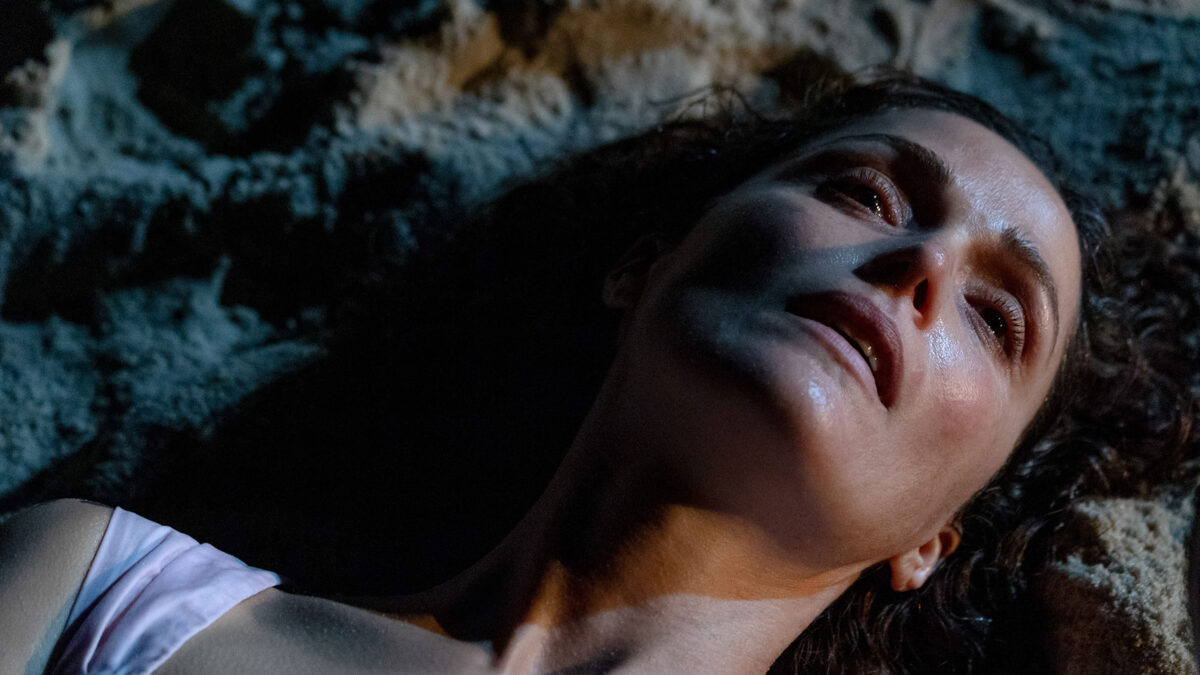
Delivering one of the very best performances of the year, Rose Byrne is a tour de force in If I Had Legs I’d Kick You, Mary Bronstein’s first film in nearly two decades, after helping give Greta Gerwig her start in Yeast. Jourdain Searles said in our Sundance review, “Many films, from the classic melodrama Mildred Pierce to last year’s playful dramedy Nightbitch, have tried to depict the unique struggles of motherhood with a focus on the special intimacy of child-rearing. Mothers have long borne the brunt and most of the blame for how their children behave in the world. Fatherhood is considered more optional, and the bar to clear for being good at it is much lower. These may seem like obvious statements, but they bear repeating in an American society that villainizes birth control and abortion. America wants women to bear children and then provide them with none of the emotional or monetary support for them to thrive and have their own personal lives. In recent years, filmmakers have tried to illustrate the darker side of motherhood, with films like Tully getting at the exhaustion and loss of self that can happen therein. In the aforementioned Nightbitch, Amy Adams plays a woman who realizes how lost and hopeless she feels as a stay-at-home mother, having given up her career to spend more time with her son. No matter how often they cry out for help, our patriarchal society pressures them to push themselves all the way to the edge.”
5. The Perfect Neighbor (Geeta Gandbhir; Oct. 10 in theaters and Oct. 17 on Netflix)
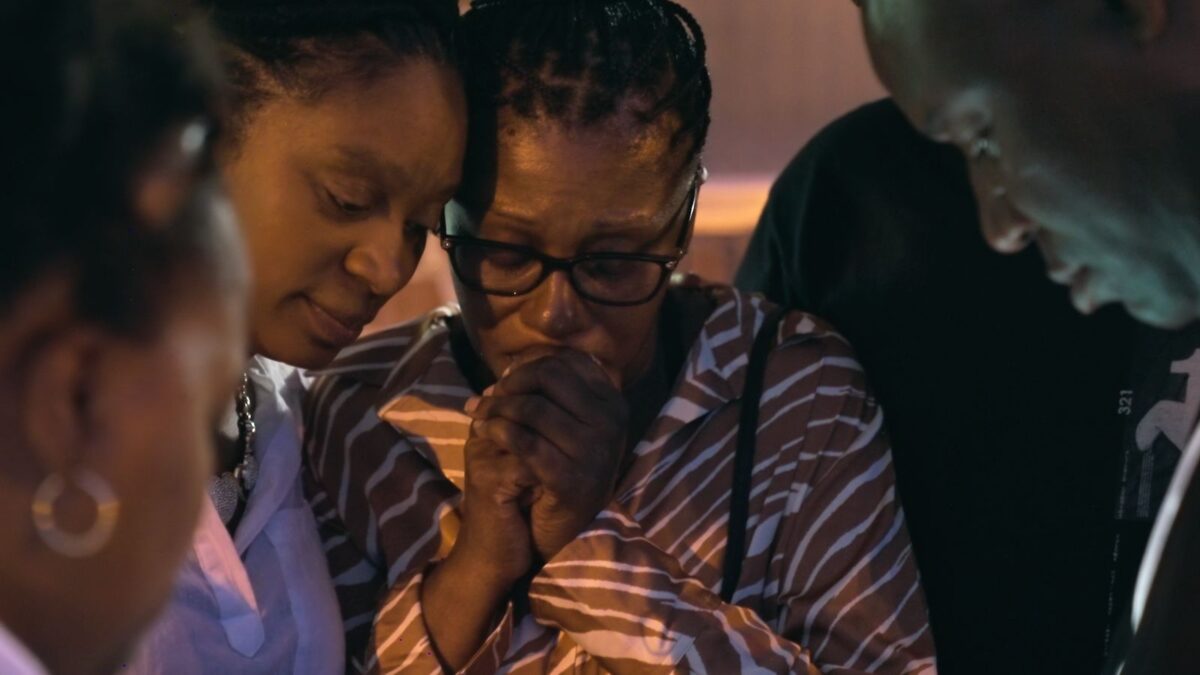
First coming under wider scrutiny in 2005 when passed in Florida, the stand-your-ground law allows property owners to use deadly force to defend their home from trespassers. The foreseeable result has been an uptick in homicides and a proven racial bias when it comes to the number of white shooters and Black victims. While there’s an overwhelming amount of data and cases a documentary could explore on the issue, Geeta Gandbhir’s gripping, infuriating The Perfect Neighbor takes an objectively narrow, focused approach, exploring a single case in Florida primarily through police bodycam and CCTV interrogation footage. Initial police calls involving a neighbor upset at the children trespassing on her property shockingly escalates in a single moment; Gandbhir lets the footage speak for itself, creating a documentary far more upsetting and impactful than any number of talking heads could provide. Continue reading my Sundance review.
3. Blue Moon (Oct. 17) and 4. Nouvelle Vague (Oct. 31 in theaters and Nov. 14 on Netflix) (Richard Linklater)
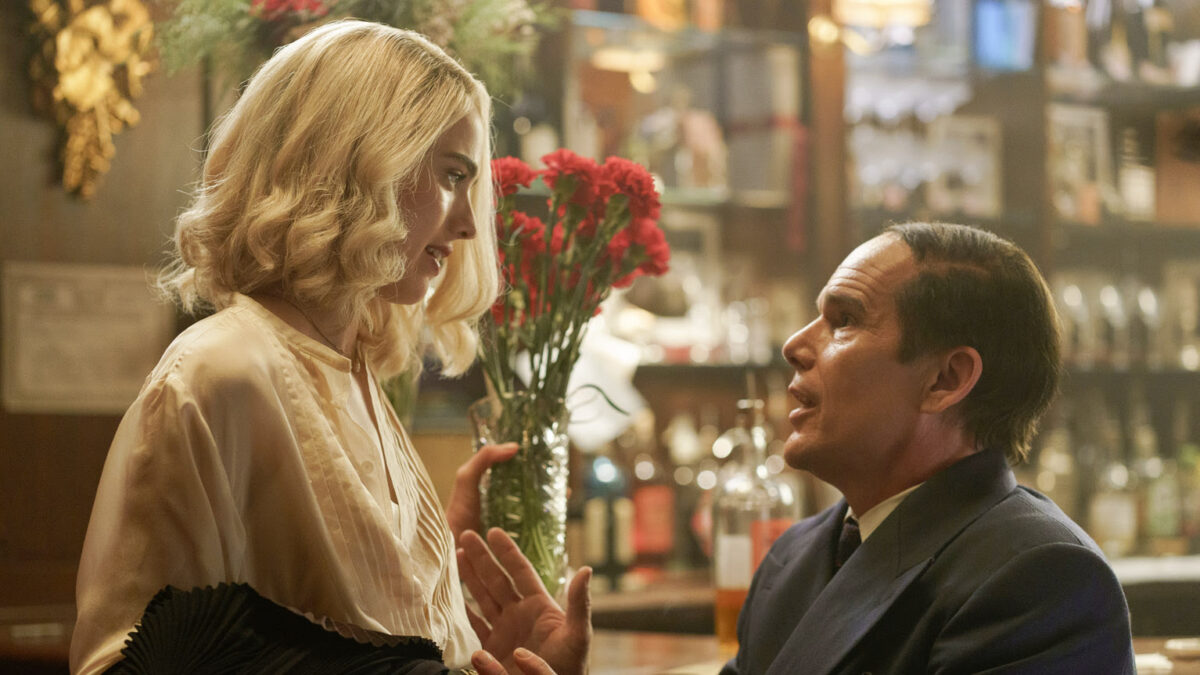
Proving he’s one of the most versatile directors working today, Richard Linklater delivers two very different features this month: one confined mostly to one room and a few characters, captured with a patient eye, wide frames, and full color; the other a frenetic, sprawling filmmaking odyssey shot in black-and-white and 1:33 with a new character introduced seemingly every minute. Yet both projects have a shared fascination with the process of art––one capturing an artist at the beginning of their career with endless creativity, the other in their final time on this earth, contemplating a lifetime of successes and regrets.
“Blue Moon, which world-premiered at the Berlinale, is another beautifully personal work from Linklater,” said David Katz in his review, “full of authorial idiosyncrasies and tics, but distinguishing the film from his corpus is it being the kind you can only make at a mature career stage. It’s not so much that Linklater has nothing to prove––screenplays like Robert Kaplow’s and its rarified, remote milieu of mid-WWII New York theaterland can typically send financiers balking. With a ‘legacy’ career, little favors and gives come your way; for Linklater, maybe his next will be a legitimate awards contender, and new relationships with acting talent can be brought to bear. And different or lower expectations for the end product allow him to really express who he is as an artist at this point in his life.”
“Shot on black-and-white film with the same Cameflex model used by Jean-Luc Godard for Breathless––the film it portrays and embodies the making of––Nouvelle Vague is not merely an imitation of Godard,” said Luke Hicks in his review. “It’s a theft of Godard for a creation all its own, which is a strange thing to say about a movie that looks and feels so much like the one that inspired it. Richard Linklater’s newest, despite suggesting no form of his past work, rings much like Linklater.”
2. It Was Just an Accident (Jafar Panahi; Oct. 15)

Jafar Panahi followed Henri-Georges Clouzot, Michelangelo Antonioni, and Robert Altman as just the fourth director to win the Cannes Palme d’Or, Berlin Golden Bear, and Venice Golden Lion. His tense, humorous It Was Just an Accident is now gearing up for a major fall roll-out. Leonardo Goi said in his review, “If you were handed over the man who destroyed your life and those of countless others––a psychopath who tortured, raped, and murdered in the name of a tyrannical system––what would you do? Would you exact revenge or do the impossible––forgive and set him free? It Was Just an Accident, Jafar Panahi’s first film since his release from prison in Iran, hinges on that excruciating dilemma. The story is easy enough to summarize; its emotional wallop defies facile description. In an unexpected stroke of luck, four Iranians who did time for protesting the regime manage to abduct the guard responsible for the unspeakable atrocities they suffered behind bars. Having knocked him unconscious, they shove him in a van and travel around, wondering what to do. The whole journey spans less than a day. By the time it wraps, Accident feels like content under pressure. Panahi welds scorching social critique to a masterful command of form: a devastating cry for justice, his latest also serves as a superb thriller. It is a towering achievement.”
1. The Mastermind (Kelly Reichardt; Oct. 17)
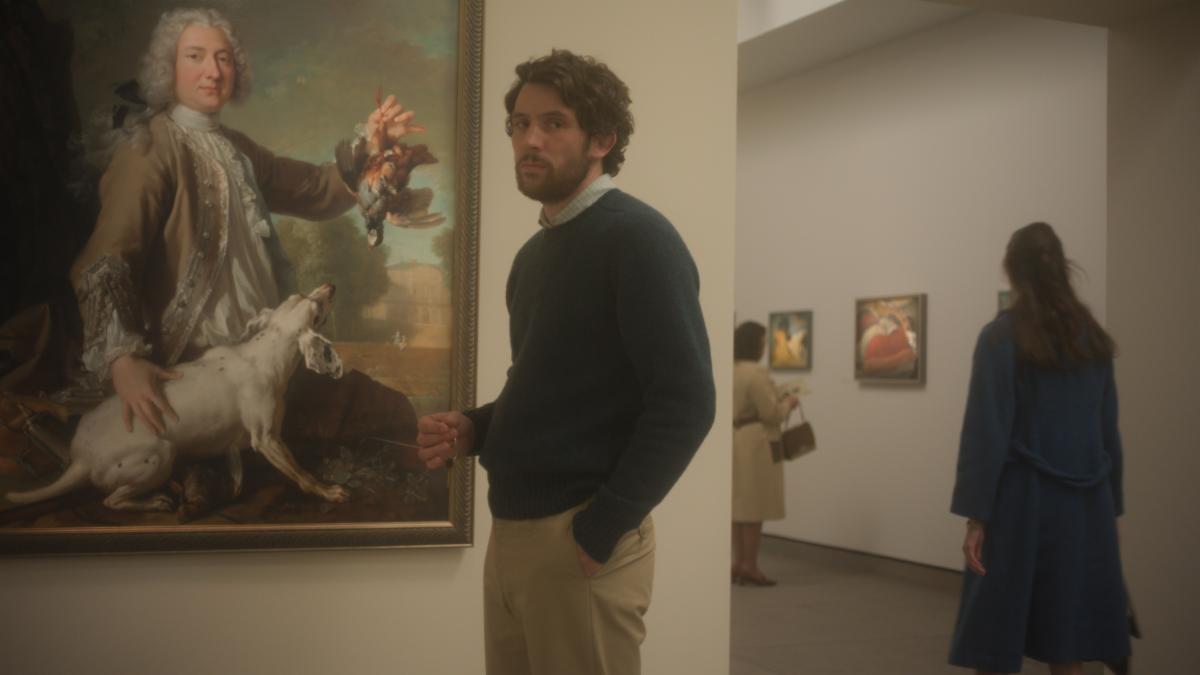
With a sense of patience, detail, and adoration for the nuances an actor can bring to a performance, Kelly Reichardt may have the most consistent, remarkable body of work of any American director. Her latest, The Mastermind, continues the streak while finding new territory to explore, this time delivering a heist film only the way she can. Rory O’Connor said in his review, “For the second time in three years, Cannes’ competition ends with a film in which Josh O’Connor plays a scruffy, late-20th-century man with some knack for pinching masterpieces. Following (spiritually or otherwise) Alice Rohrwacher’s La Chimera is Kelly Reichardt’s The Mastermind, an experiment in form so thorough and self-assured that even Robert Bresson might have appreciated it. Nobody expected the versatile director’s first heist movie to resemble Ocean’s 11, but The Mastermind is still remarkably low on flash. There is a jazzy score by Rob Mazurek and some even-jazzier opening credits, but this is very much a Reichardt joint: from its gorgeous, sylvan landscapes and autumnal color palette to the patient, observational tone, it suggests what robbing art in the early part of the 1970s might have truly felt like.”
More Films to See in October

